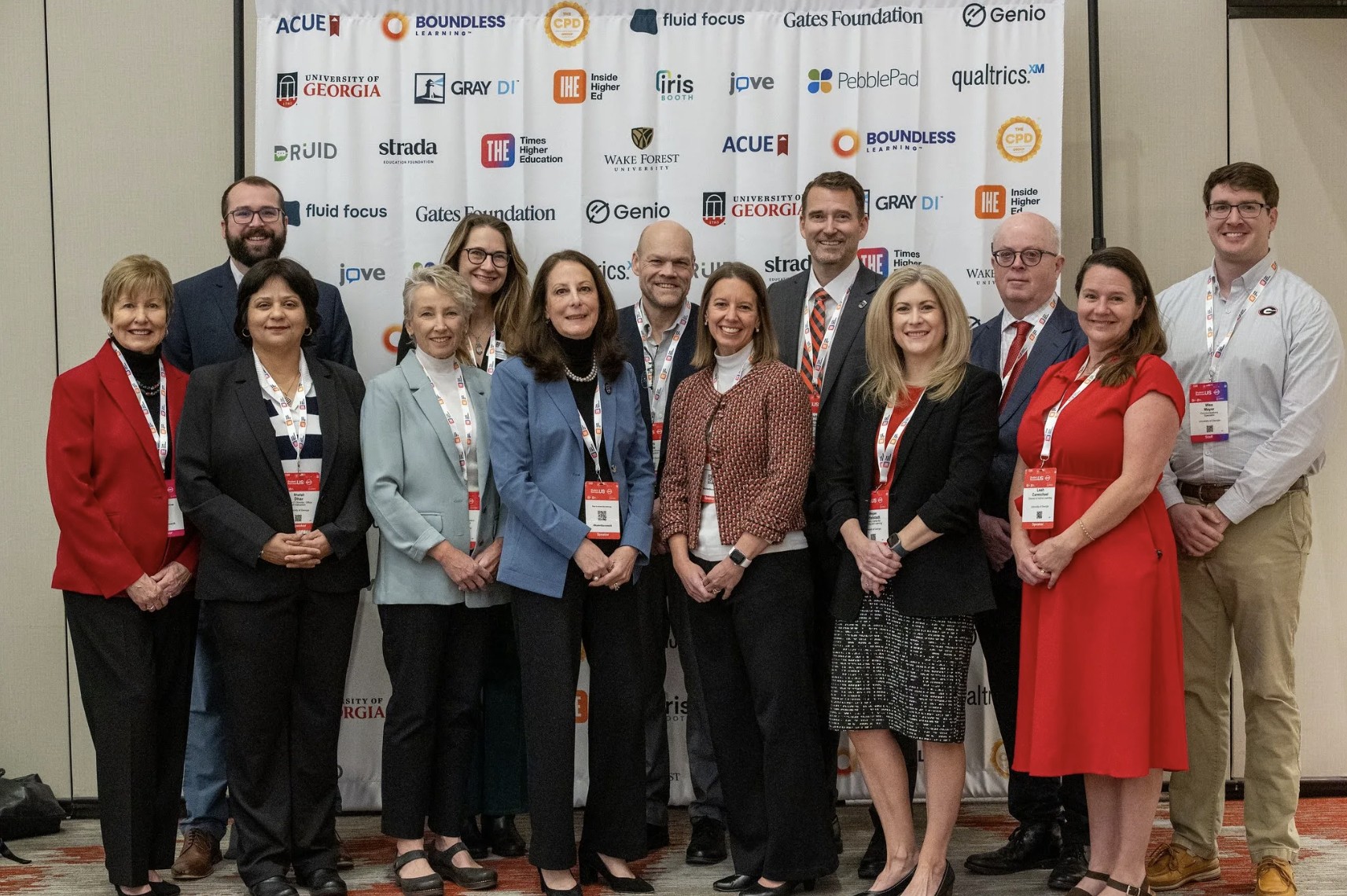The TRIO Ronald E. McNair Scholars program prepares selected UGA undergraduate students for graduate study at the doctoral level.
Each year, up to 25 McNair Scholars are selected to participate in both academic and summer activities. The goal of the McNair Scholars Program is to increase the number of underrepresented students in doctoral programs. Funding is provided by the U.S. Department of Education’s Ronald E. McNair Post-Baccalaureate Achievement Program as part of the Federal TRIO program.
The TRIO Ronald E. McNair Program is federally funded through the U.S. Department of Education.
If you are interested in applying to the McNair Scholars program, please access the web form to complete the application and list your recommenders for the letter of recommendation. Applications are due on April 16th, 2025 at 5 PM.
Application Letter of Recommendation Form (PDF)
Virtual Open House Dates
- None currently scheduled
For more information about the McNair Scholars program, join us for one of our virtual open houses. Please email Shaquetta Success at [email protected] to RSVP or ask questions.
Eligibility Requirements
Students interested in applying for the program must meet the following criteria:
- Achieved sophomore standing (48+ hours)
- 3.0 minimum cumulative UGA GPA
- U.S. citizenship or permanent U.S. residency
- Qualify as either a first generation college student who has also has a low-income level established by the U.S. Department of Education or a member of a group that is underrepresented in graduate education
Program Requirements and Expectations
All McNair Scholars are required to commit in writing to the following program requirements:
- Participation in the UGA McNair Scholars Summer Research Program
- Attendance at weekly and/or bi-weekly seminars
- Completion of a one year academic research project
- Presentation of research at a national conference and at the UGA undergraduate symposium
- Preparation for the GRE general examination
- Completion of a doctoral degree within 10 years of attaining a bachelor’s degree from UGA
Program Benefits
- 8-week Paid Summer Research Program
- Research & Graduate Application Courses
- Interactive Workshops & Seminars
- Priority Registration
- Travel Assistance to Present Research Nationally
- Graduate School Tours and Application Fee Assistance
- Faculty Mentorship
- Counseling and Advising Sessions
- GRE Prep Classes
- Cultural Events & Activities
- Networking Opportunities
- Support for Publishing Research Findings
- Opportunities for Personal & Academic Development
- Private Computer Lounge
About Ronald E. McNair
Ronald Erwin McNair was born on October 21, 1950 in Lake City, South Carolina. In his junior year of high school, Dr. McNair was inspired to work hard and persevere in his studies by his family and by a teacher who recognized his scientific potential and believed in him. Dr. McNair graduated as valedictorian from Carver High School in 1967. In 1971, he graduated Magna Cum Laude and received a Bachelor of Science degree in Physics from North Carolina A&T State University (Greensboro). Dr. McNair then enrolled in the prestigious Massachusetts Institute of Technology. In 1976, at the age of 26, he earned his Ph.D. in laser physics.
While working as a staff physicist with Hughes Research Laboratory, Dr. McNair soon became a recognized expert in laser physics. His many distinctions include being a Presidential Scholar (1971-74), a Ford Foundation Fellow (1971-74), a National Fellowship Fund Fellow (1974-75), and a NATO Fellow (1975). He was also a sixth degree black belt in karate and an accomplished saxophonist. Because of his many accomplishments, he was selected by NASA for the space shuttle program in 1978. His first space shuttle mission launched successfully from Kennedy Space Center on February 3, 1984. Dr. Ronald E. McNair was the second African American to fly in space.
Two years later he was selected to serve as Mission Specialist aboard the ill-fated U.S. Challenger space shuttle. He was killed instantly when the Challenger exploded one minute, thirteen seconds after it was launched. Dr. McNair was posthumously awarded the Congressional Space Medal of Honor. After his death in the Challenger Space Shuttle accident on January 28, 1986, members of Congress provided funding for the Ronald E. McNair Post-Baccalaureate Achievement Program. Their goal was to encourage low-income and first-generation college students and students from historically underrepresented ethnic groups to expand their educational opportunities by enrolling in a Ph.D. program and ultimately pursue a career in academics.
This Program is dedicated to the high standards of achievement inspired by Dr. McNair’s life.





